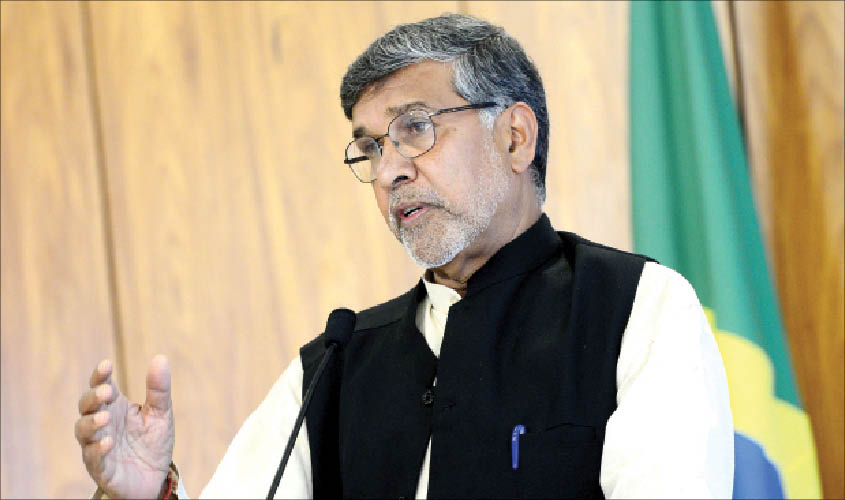In his new book, Nobel laureate Kailash Satyarthi draws our attention to the ‘triangular paradigm’ of poverty, illiteracy and child labour that is ruining childhoods in India, writes B. Sudharsan.
Nobel peace laureate Kailash Satyarthi calls child labour and slavery among the most pressing yet neglected issues of the modern age. As one reads his recent book, Every Child Matters, one is constantly reminded of the state of children not just in India, but across the globe. The child-rights activist, who has rescued over 85,000 children so far from various forms of child labour, repeatedly reminds the reader that there is a direct relationship between the number of child labourers and the number of unemployed adults across the world.
And the numbers are startling, to say the least. For, as Satyarthi tells the reader, there are nearly 152 million children across the globe who are losing their childhood to child labour, with many continuing to work in hazardous occupations. On the other hand, there are nearly 200 million adults worldwide who are jobless.
In fact, the 64-year-old frequently points out in his articles written at various points in time, that the children who work as labourers have parents who are either jobless or are forced into some form of modern slavery. “It won’t be an exaggeration to say that child labour is the biggest travesty and scandal of our times,” writes Satyarthi, who also started the Bachpan Bachao Andolan, a campaign against child slavery and child labour.

As one completes reading the book, the world assumes a wholly different meaning. Every day we find children working in various shops, selling cigarettes, bidis and peddling drugs, or begging on the streets. But do we ever take time to think why the child us not in school like so many other children? As a matter of fact, this was exactly the question that Satyarthi, who has dedicated his Nobel Prize to the nation, asked his parents and teachers when he was all of six years of age. In one of his articles, he recounts how he saw a five-year-old child polishing shoes along with his father, and that was when he realised that not all children were as fortunate as he was.
When he repeatedly asked elders, including the father of a child labourer, the response that he got was simply this: they are poor. This is how it is meant to be. “I refused to accept that,” he writes. Matter-of-factly, the former electrical engineer writes in one of his articles that child labour, illiteracy and poverty go hand in hand. “Child labour and poverty are both the cause and consequence of each other,” he laments, terming the three as a “triangular paradigm”.
Satyarthi has also been attacked many a time by the child-trafficking mafia, but it is sheer determination that keeps him going. Nevertheless, the activist sadly notes
The activist, who has also led numerous marches in India and abroad so as to highlight the issue of child abuse in multiple forms, is very categorical when he observes that there is a lack of political will when it comes to issues affecting children. And the reason is crystal clear: children do not form part of the electorate and hence, hardly matter for the political class.
However, he hopes to see a world free of child labour and slavery in this generation itself, and reiterates that if the political class, activists and international organisations join hands and start taking strict actions, such a world would not just remain a dream.
In one of his interviews, he also talks about the plight of children, who are sexually exploited either in school, at home or in public places. “Sadly, in most cases, they don’t speak up due to fear of transgressing honour, respect and dignity,” he indignantly spouts, adding, “because we don’t have an environment where children can vent.” Satyarthi also calls for a national tribunal for children in India that would fast-track the cases.
The book is not just an eye opener but also a mirror that clearly reflects the state of affairs regarding child abuse and slavery across the world. The publisher has provided a spacious platform to the Nobel laureate to highlight the pitiable condition of millions of children worldwide.

